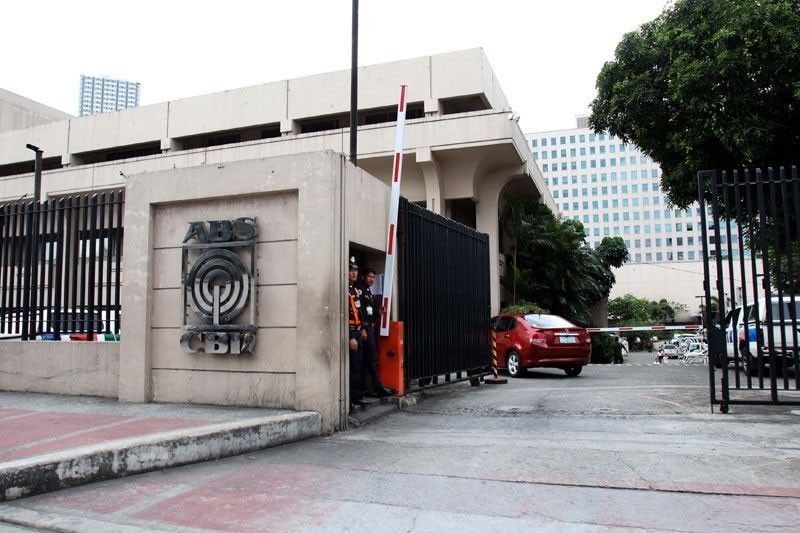ABS-CBN circumvented ownership requirement — Enrile

MANILA, Philippines — Owners of network giant ABS-CBN may have violated the constitutional ban on foreign ownership of media entities in the country when its holding company issued in 1999 Philippine depository receipts (PDRs), much of which may be held by foreigners, former Senate president Juan Ponce Enrile said.
In a paper titled “The ABS-CBN Problem,” Enrile backed the move of Solicitor General Jose Calida to file last February a quo warranto case against the network for violating provisions of the Constitution that mandates that media companies must be 100 percent Filipino-owned when it issued PDRs to foreign investors.
PDRs are investment instruments that allow foreign investors to put in capital in a local corporation. The terms of the PDR offering differ from corporation to corporation. Other broadcast networks and media outfits in the country have also issued PDRs in the past.
During the Senate hearing on the ABS-CBN franchise last Feb. 24, the SEC said the network has so far not committed any violations of the Constitution with regard to the ownership of media enttiies.
“I think the Solicitor General is correct in raising the issue before the Supreme Court. Article XVI, Section 11(1) provides that ‘The ownership and management of mass media shall be limited to citizens of the Philippines, or to corporations, cooperatives or associations, wholly owned and managed by such citizens.’ It is about time for the Supreme Court to clarify this issue once and for all for the benefit of the nation,” Enrile said.
He said ABS-CBN is “the largest and, to me, the most powerful and influential media entity in the country” that is now the “central figure of a contentious legal and political problem in our society.”
The current situation started on March 30, 1999 when Worldtech Holdings Corp. was organized with 50 percent owned Lopez Inc., and the remainder owned by certain directors and officers of the latter company, Enrile said, citing records from the Securities and Exchange Commission (SEC).
In September that year, the name Worldtech Holdings was changed to ABS-CBN Holdings that, up to today, never had a business of its own except to be the sole issuer of PDRs and as a receptacle of common shares of the listed ABS-CBN corporation, effectively making the holding firm a mere shell company, according to Enrile.
“Clearly, the creation of ABS-CBN Holdings was intended simply to circumvent and overcome the Filipino ownership requirement of the Constitution for mass media,” he said.
That same month, ABS-CBN Holdings offered to investors 132,000,000 PDRs with an issue value of P46 each or total monetary value of P6.07 billion, Enrile said.
He said the PDRs were related to the 132,000,000 ABS-CBN shares transferred to holding company immediately before the closing of the offering.
SEC records also stated the shares will remain registered and in the name of ABS-CBN, and all rights, including voting rights, will remain with the company.
SEC records showed that in September 2019, the movements in the values of the PDRs and the ABS-CBN shares were practically the same.
“It is not farfetched to think that some, if not many, of those huge number of PDRs floating around have fallen into the hands of foreigners who have no right whatsoever to have any economic interest in mass media business in the country,” Enrile said.
He said the PDRs “have all the earmarks or attributes of ownership: possession, enjoyment and disposition.”
SEC Commissioner Ephyro Luis Amatong told the Senate committee on public services that when ABS-CBN Holdings Corp. offered PDRs in 1999, it was based on prevailing laws and jurisprudence, particularly the Foreign Investments Act.
“Even now the interpretation of the SEC is that holders of PDRs are not owners of underlying corporation, there’s no transfer of ownership (to foreigners),” Amatong told the panel chaired by Sen. Grace Poe.
Amatong stressed the PDRs were not held by the network but the holding company.
“If the (network) was not in violation, they should be covered, they should be allowed to rectify if there’s a new interpretation (from the SC),” Poe said, adding with the Philippines having a relatively small capital pool, PDRs are resorted to as way to gain investments.
ABS-CBN president and chief executive officer Carlo Katigbak maintained the network was compliant with the law.
“If the rules and regulations have changed, we should be given the opportunity to rectify along those laws,” Katigbak told the panel.
Sen. Sherwin Gatchalian said based on his reading of the holding company’s documents, the PDRs had safeguards.
“The provisions are quite explicit…they have to comply with constitutional requirements,” Gatchalian said.
Sen. Sonny Angara pointed out that many companies – listed or not – rely on PDRs. He asked Amatong what would happen if the SC would rule against ABS-CBN.
“It is not only ABS that made use of the PDR vehicle. There are other media outlets, depending on the grounds, how the Court will rule, other companies that have foreign investors in nationalized (industries) may also be affected,” Amatong said.
- Latest
- Trending




























